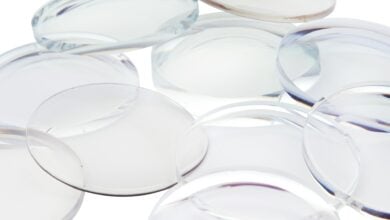Everyone knows that staying hydrated is important for your health, but did you know that drinking tea can be especially beneficial? The benefits of tea are well-known in the world of health and wellness, but it is important that you drink an appropriate amount in order to reap these rewards. How much tea you should drink will mostly depend on what kind of tea you consume.
1. Herbal Infusions
Since herbal infusions typically don’t contain any caffeine, it’s safe to say that you can drink as many as ten cups a day. They are made from herbs and spices such as chamomile, mint, citrus rinds, or even dried flowers. If you enjoy drinking herbal infusions or tisanes during the day in order to boost your wellness, then you mostly don’t need to worry about overdoing it.
Since they’re not made from the Camellia Sinensis plant – like real teas, there’s a wide variety of flavors you can choose from. Drinking herbal tea can be a great alternative to sugary beverages like soda. While drinking plenty of water is important, it can get a bit boring. Bringing some herbal teas with you to enjoy throughout the day is a great way to stay hydrated and treat yourself at the same time.
2. Pu’erh Tea
Pu’erh tea is made from the same plant that regular teas are; however, it’s not fully made up of Camellia Sinensis leaves. It is green in color when it is fresh, but when you age it, it turns dark.
Pu’erh tea also contains caffeine, so you don’t want to drink more than two servings a day. While the caffeine content is high, there are plenty of benefits that come with drinking pu’erh tea as well. It can help aid weight loss, reduce cholesterol levels, and has even been known to protect the liver. You can drink it with or without milk, and it can be served hot or cold. It’s also a great one to enjoy after meals.
Pu’erh tea is a fermented variety from China. When you drink this type of tea, you’ll be helping your immune system function properly, protecting yourself against free radicals, and boosting your metabolism.
3. White Tea
The least processed out of all teas, white tea is made from young leaves and buds from the camellia Sinensis plant. Since it’s not exposed to high amounts of heat or processing, it doesn’t contain as much caffeine as other varieties do.
In fact, it contains a tiny bit of caffeine, and the only reason why it has any at all is because of the fermentation process. White tea doesn’t lose its antioxidants during processing because it’s not exposed to too much heat either. While it can be consumed before bedtime without worry, you should stick to two cups a day in order to stay within safe consumption levels.
White tea can help boost your immune system, reduce high blood pressure and cholesterol levels, and protect the body against free radicals.
4. Black Tea
Black tea is made from steeping dried Camellia Sinensis leaves in water at a low temperature for five minutes. The amount of caffeine depends on the steeping time as well as where it was grown. In order to stay within safe consumption levels, you should limit yourself to three cups a day. Black tea does contain caffeine, but drinking it can still provide plenty of benefits for your health. It has antioxidants and other compounds that can help protect your body against diseases like
The darker the tea is in color, the more caffeinated it tends to be. Some speculate that black tea can help prevent cancer to a certain degree by protecting cells against damage that comes from toxins and free radicals.
5. Green Tea and Oolong Tea
Green and oolong teas still come from the camellia Sinensis plant, but they have been exposed to more processing than white tea. They are more caffeinated as well, so it’s best that you consume green and oolong tea in moderation as well. Drinking green or oolong tea will protect the body against free radicals and toxins, keeping you healthy overall. They can also help lower your cholesterol levels and blood pressure, so this is a great tea to enjoy if you’re trying to improve your overall health.
You should limit yourself to two or three cups of either green or oolong tea per day, but no more than that. The catechins in both green and oolong teas can help promote good digestion, boost metabolism, and even prevent the flu.
When it comes to caffeinated teas, it’s important to note that these are only general guidelines. Some people are more sensitive to coffee and tea than others, so you should always monitor your consumption habits so you don’t overdo it. Teas are incredibly healthy and have been used for centuries by countless cultures to provide a wide range of health benefits. Luckily, you don’t have to spend your life chugging down mugs of water in order to stay hydrated – teas can help with that too!




